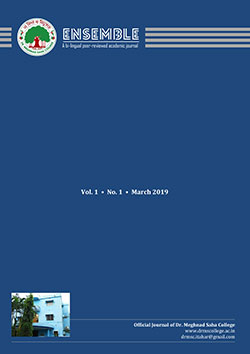MAKING SENSE OF FREEDOM: TRAVEL STORIES OF BENGALI WOMEN, 1900-1920
Abstract:
Women’s travel experiences in the first two decades of the twentieth century helped us to understand their dilemmas, restrictions, insecurities, and desires. Their autobiographies, writings in the periodicals, novels, stories are significant sources that I discuss in this paper. Women were increasingly becoming the travel partner of her male counterpart. This was the outcome of western influence that impacted social and gender relations in the colonial period. Also, it was a challenge to the ‘effeminate Bengali’ men by the ‘manly Englishman’ to situate the ‘new woman’ in a new social place to justify their modernity. Here I show the imprints of how women conceptualized freedom in the literary domain. This freedom of women was not either for their emancipation or their freedom. It was temporary in every sense. Domestic space remained the natural ‘domain’ for women. However, this experience of travel helped them understand and develop the meaning of freedom. In the heydays of the anti-colonial nationalist movement, freedom had several meanings to people in India cutting across class, caste, group and sectarian affiliations. My work contributes to that jigsaw puzzle by giving a narrative of what meaning freedom carried to the middle-class Hindu Bengali women.
Keywords:autobiography, colonialism, novels, travel, women
https://doi.org/10.37948/ensemble-2020-0201-a012
Views: 3454



